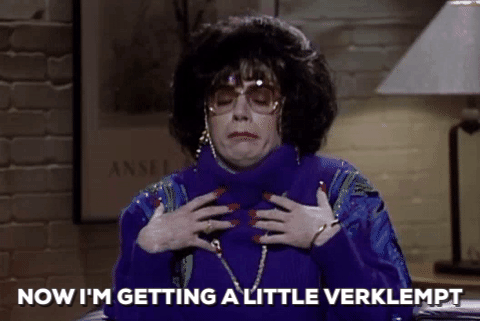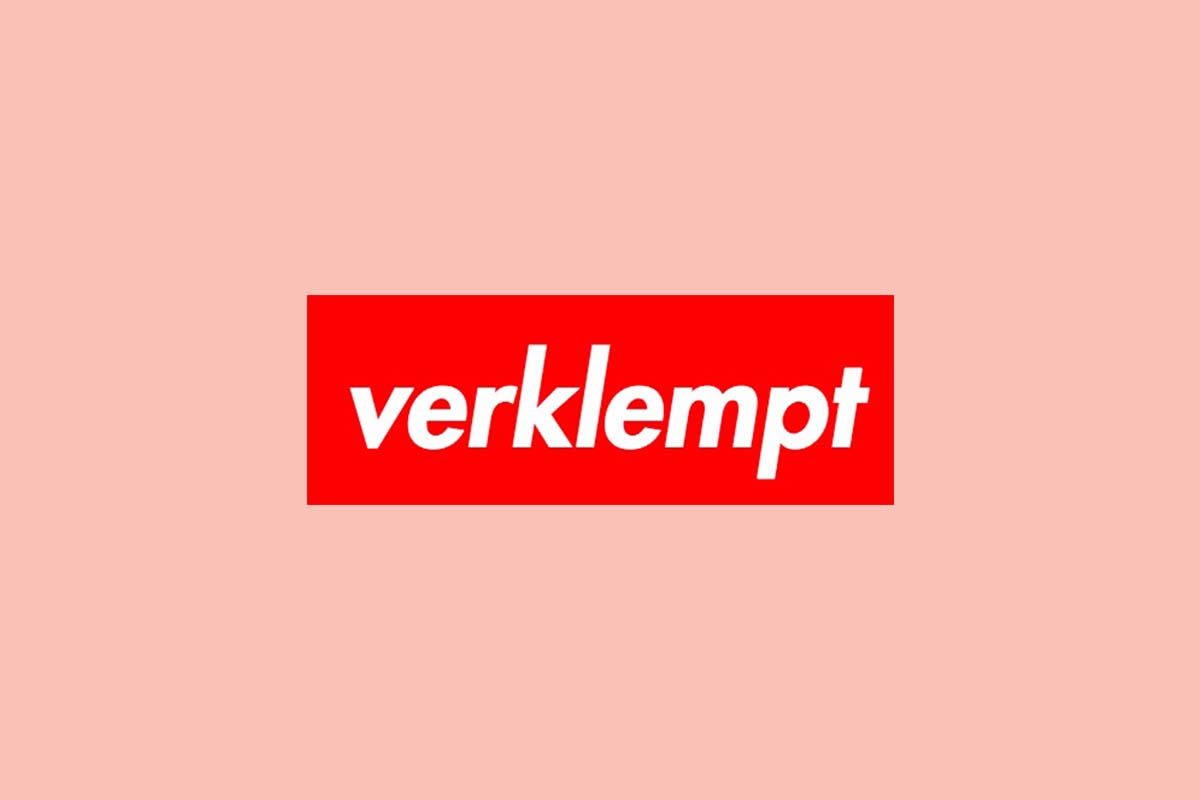As a millennial, I’m guilty of an offense committed by many of my peers: I use hyperbole to describe my feelings, daily activities, the movie I saw last week, and the avocado toast I ate for breakfast (seriously, it was the best). Along with everything being amazing, epic, and the best thing ever, I’ve noticed a new word entering our everyday lexicon: the Yiddish word verklempt.
Verklempt is one of the most used Yiddish words currently permeating the media. A Huffington Post writer recently used it in an analogy that put Trump in a Bachelor-style reality TV show scenario in picking the next Supreme Court justice (oy vey). Earlier this year, a journalist in Variety used it to describe how Barbara Streisand must have felt after her 1983 Oscar snub. And a curator just used it to describe Oprah visiting her exhibition at the Smithsonian in a Chicago Tribune article.
Were all of those people really so verklempt? Or were these just other instances of millennial hyperbole, the classic overuse of dramatic terms to describe any given scenario, from my breakfast to Streisand’s possible feelings about the Oscars over 30 years ago?
I recently attended one of my best college friend’s weddings, during which I became certifiably verklempt. In college, my friends knew me as someone fairly stoic — not the type to cry herself into an anxiety attack at her best friend’s wedding. But a few weeks ago, that’s exactly what I did. As the choked-up groom read his vows — while looking at my beautiful best friend in a dress her mother had made with great care especially for the occasion — I started feeling like my dress was just a shade too tight. As I realized my face, like the groom’s, was streaked with tears, I lost my ability to speak, and then, nearly, to breathe. It was the happiest anxiety attack I’ve ever had.
“I was absolutely verklempt,” I told some Jewish friends later about the experience — before wondering whether I meant what I had said. So I consulted the dictionary. “Verklempt is a Yiddish word that describes a person who is too emotional to speak,” it read. Sounds about right.
If you type verklempt into Google News, the number of search results is astounding (okay, I’m being a little hyperbolic). I did this a few days in a row one week, and every day, there were fresh news stories featuring the word. An article from The Takeout (a publication about fast food?) ran with the headline, “Burger King gifts dog with terminal cancer free burgers for life and now I’m verklempt.” (Does any dog need burgers for life? Should a very low-risk publicity play from a multi-billion dollar fast food company emotionally overcome anyone?) A mother in The Kansas City Star shared how verklempt she was after her kids graduated from 12th grade. A Nerdist writer got verklempt over Rogue Squadron’s namesake in the latest Star Wars installment. There are so many uses of verklempt in the media; I hardly knew what to think.
Sometimes, these uses are connected to Jewish people. The Sonoma Index-Tribune quoted former mayor Ken Brown describing a performance titled “Jews, Blues, and Sufi” by saying, “Be prepared to Ohm and be verklempt.” Then there’s the Barbara Streisand example from Variety, where it’s no surprise that an author, Jewish or not, would describe the famous Jewish actress succumbing to such a famously Jewish state.
Most of the time, journalists and sources use verklempt to describe reactions to entertainment (public performances, TV show finales, etc.) and celebrities going through big moments, like receiving achievement awards or getting engaged. Former President Barack Obama used the term in 2015 to describe his feelings during such a moment — when he gave Streisand the Medal of Freedom, broadcasted live on C-SPAN. (Yes, clearly everyone from the former president to members of the press gets verklempt around Streisand.)
So why did verklempt become such a popular descriptor? Is it because we’re living in the age of rampant millennial hyperbole? Or does verklempt just ring true in many situations? Is its meaning versatile enough to cover everything from Star Wars references to ailing dogs getting free hamburgers?
The origins of verklempt trace back to the Yiddish farklempt, which refers not to any old overwhelming emotion but to a particular one: depression and grief. Farklempt is the past tense of farklemen, which means “to grip, press” and has roots in the German word verklemmen, “to press, squeeze,” which is related to the German verklemmt (“uptight”). And, following verklempt even further back in time, it leads to the Old English word clam or clom, meaning to “bond” or “fetter.”
But it wasn’t until the ‘90s when we started seeing verklempt being used in pop culture. It’s hard to pinpoint exactly when it started, but Mike Myers professed his verklempt-ness as Linda Richman in the 1992 Saturday Night Live sketch, Coffee Talk, about — you guessed it — Barbara Streisand.

Its relatively recent popularity makes verklempt’s wide use in modern media much less surprising. Verklempt’s roots in the ideas of “gripping” and “grief” means it speaks to a sense of existential dread — one that permeates the psyches of many millennials today, who seem to foresee the end of days due to both the political and environmental climate. So Verklempt sounds like millennial hyperbole because it is millennial hyperbole. But that doesn’t mean it’s not an accurate word to use when overcome with feeling… or when talking about the star of Yentl.



